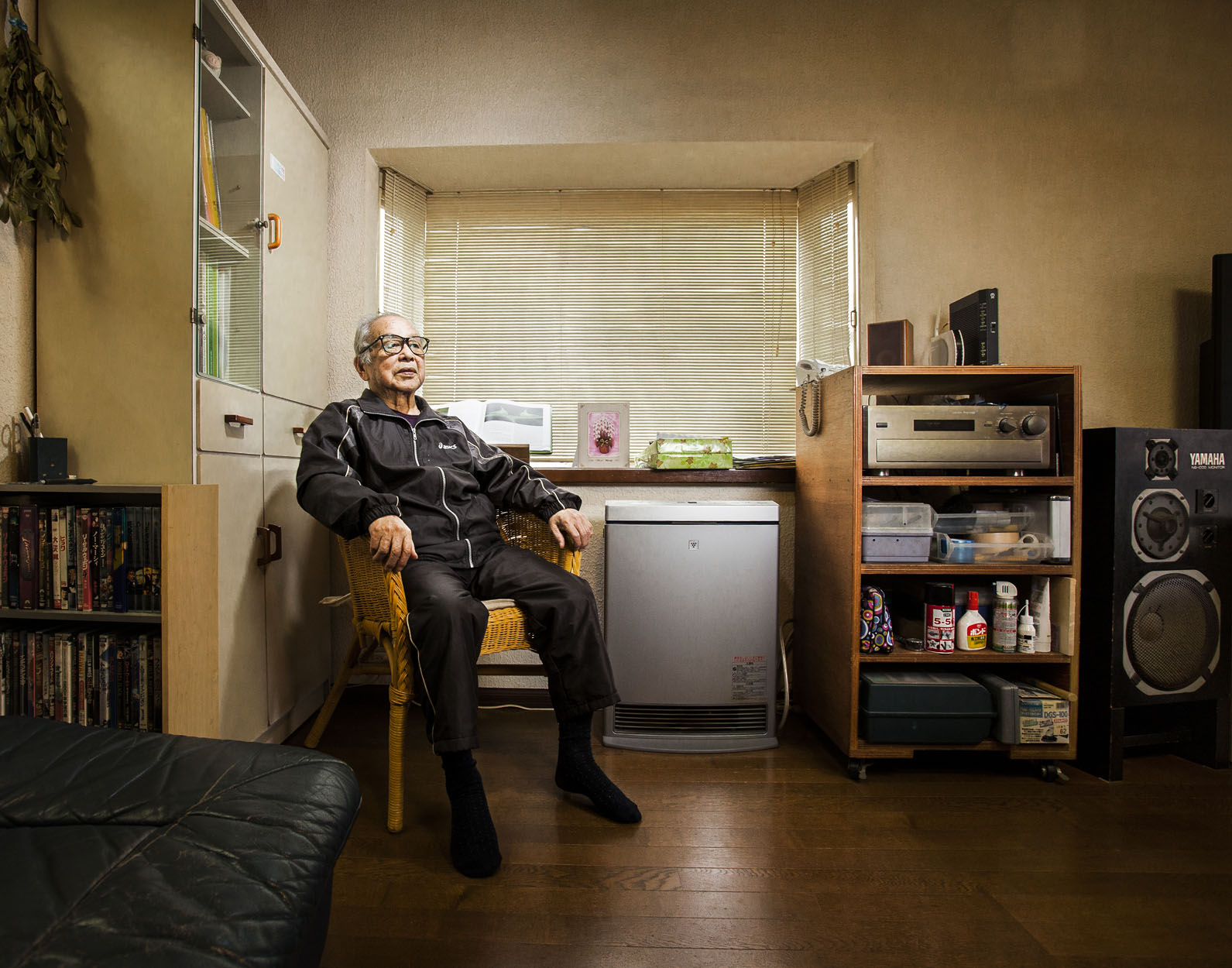My name is Mitsuru Kusakawa, and I was born on May 10th, 1927 in a village called Hachimura. I grew up in a family of farmers. I was the second youngest of six brothers. Five of us enlisted in the military.
Before the war began, Japan was already fighting China in the Second Sino-Japanese War. There was a constant climate of war in Japan. Everybody in the country felt we would eventually declare war on the United States and the British Empire. Even when I was 15 I had the intuition that things were coming to a head, but we were confident we would prevail.
I was deployed in April 1943 as a member of Nippon Kaigun, the Imperial Japanese Navy. I went to a military school in Yokosuka in Kanagawa Prefecture, where I trained for 6 months. It was actually a fun time. Sometimes an eight-man crew would row from Yokosuka to Tokyo. When we got to Tokyo, we would eat sushi and have a good time. I was happy once I graduated the academy, because I was proud to fight for my country.
From military school I went to board a ship in the Bungo Channel, between Kyushu and Shikoku Islands. Once I entered the Navy I found that the training was more arduous and strict than military school. The violence from our superiors was particularly harsh. One time I was hit by a stick from a superior. I thought at one point I couldn't bear it. It was tough, but ultimately it helped me build my discipline.
I was a part of the night surveillance of our ship and watched the sky for US aircraft. On April 7th, 1945, I was a member of one of the two crews who escorted the Yamato battleship towards Okinawa. She was on a one-way mission to the island to deploy soldiers and protect it. We rowed alongside the submarine to ensure her safety, but unfortunately she was sunk by American carrier-based bombers and torpedo bombers. Their aircraft spotted us south of Kyushu.
In the summer of 1945, an American Grumman fighter aircraft attacked my boat as it was stationed near Shikoku. Three of my fellow soldiers were killed in front of me. We couldn't have a full funeral so we put them in black blankets and put them into the sea, our typical Navy funeral.
I was on the ship when I heard the war ended. I was very sad when I heard we lost, but on the other hand I felt relieved that the war was over. So many horrible things happened during the war. I saw friends die, it was like hell. I haven't been afraid of anything since the war.
Initially after the war ended, I became worried because I had no idea what I would do with the rest of my life. I got a job on a Navy ship as it went to pick up our soldiers deployed in other areas. I went to Saigon, Taiwan, and various small islands including Guadalcanal. I remember we once had to travel up the Mekong river for three hours to get to Saigon.
I also went to Sydney, Australia to retrieve the Japanese soldiers fighting along the many islands around Australia. We left for Sydney in February 1946. It was so cold on the waters that I got hypothermia, but by the time I got to Sydney it was summer so I felt better.
After I finished that mission, I came back to Hachimura. All of my brothers made it home safe too, which was a miracle. It was hard to find a job initially, but I joined the police force in January 1948. I've lived a good life since then.
